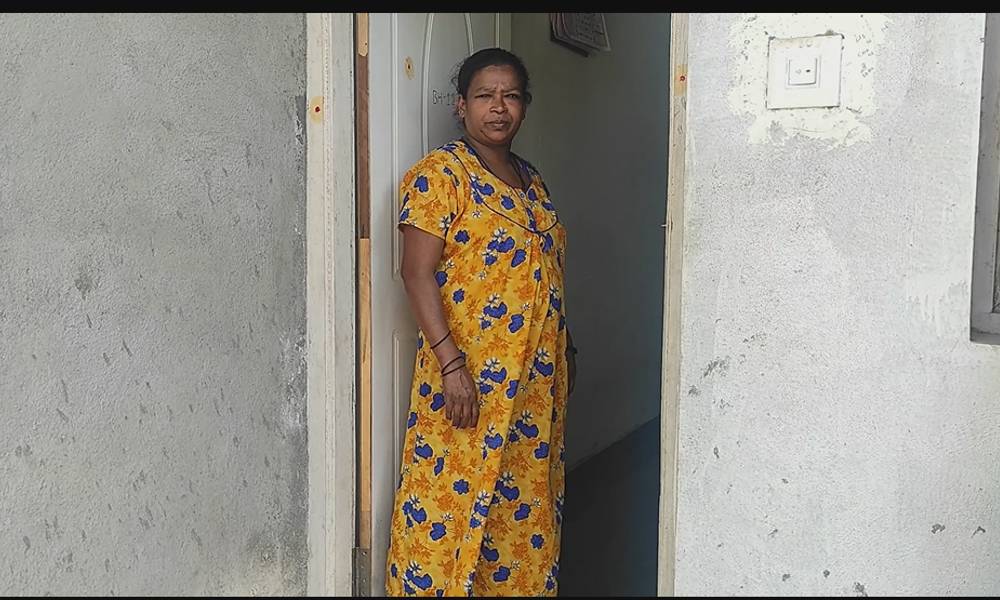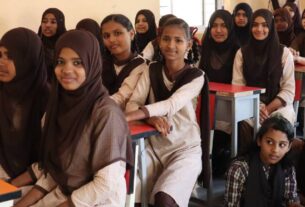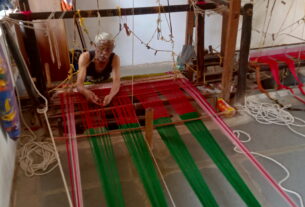In the silk town of Karnataka in Ramanagaram District lies many silk factories working where silk workers continuously work for longer hours to produce quality silk. In this district lives Raghavendri, a silk worker who is working in the silk industry for many years. But since last few months she is dealing with health issues such as anxiety and headache issues.
Besides, her own health deteriorating, she has to take care of her husband who is dealing with a disability due to alcohol consumption. “Namaste, I am working for 30 years, and my husband also worked in the silk industry. But for the last two months my husband is not working because of his sickness, and I have not enough money to show him to a doctor. I get Rs 320 in a day if I work for 8 hours. But in Rs 320 I am not able to run my house, and I am not able to take my husband to a doctor. I work continuously for 8 hours; hence, I have many health problems. I have headache issues and anxiety issues. I went to NIMHANS, but I cannot go again and again leaving my husband behind. I have severe headache problems, so I just eat medicines and manage it. I am not able to sleep at night because of my anxiety,” exclaimed Raghavendri.

It’s not just Raghavendri but many like her who are working in the silk industry and are going though mental health issues in Ramanagaram district. Psychologists and government hospital records have documented 250 mental health issues in the district till now. Psychologists said that the reasons could be long working hours, family pressure and etc. “Yes, we can see both in rural and urban areas. Yes definitely, we do find mental health cases from silk industry, not just silk industry from other areas too. We can see more patients with depression, loneliness, sadness, feeling low, sleep disturbance, lack of attention and concentration, feeling worthless and hopeless. And in depression we can see patients with anxiety symptoms, palpations, tremors and sweaty,” stated Dr Guruswamy, Psychologist at Ramanagaram Government Hospital.
Raghavendri shared that whenever she feels sick or is going through stress and anxiety, she takes a leave from the work but that leads to her pay cut for the day. She does not have any holidays and have no time for herself. “Traveling to the government hospital is costly. I am helpless because I cannot take my husband to the hospital and because of that I cannot do much for my health.”
But with increasing Mental health issues, District Mental Health program is in place in Ramnagaram district which intends to spread awareness regarding mental health issues among the villagers who are from different occupations including the silk workers.
As per Ramnagaram District mental health program, various mental health projects are being taken up such as the NIMHANS ECHO-BLENDED program which was introduced during covid to deal with mental health disorders.
District Health Officer, Dr Manjunath gave more insights into the program and stated that it is going well in the district. “” Around 830 ASHA workers are working under this program. Every year all the ASHA’s are trained. They will be told about the common and severe mental health disorders. Once they are trained then we also tell them to analyse the follow ups if the villagers are taking follow up sessions or not.”
But while interviewing some silk workers, the observation was that they do not know about any Mental Health program. They do not know what mental health is. Raghavendri said that she does not know about any mental health programs and nothing about ASHA workers. “I do not anything about ASHA workers and the mental health program. Now the government hospital is far away I cannot go there because traveling to the hospital is costly.”
With the lack of state intervention, Dr. Adarsh, senior psychiatrist in the Ramnagaram Government Hospital recommended increased personnel to cater to more villagers in Ramnagaram. “National Mental health survey says that 10 out of 100 people will have illness of lifetime. Hence, a single psychiatrist cannot cater to one whole district. Other challenges are red tapism that’s there everywhere. Mental health is a very different subject, and you need to address it differently. It can’t be addressed quantitatively. Mental health is something which is qualitative and subjective. If we run behind the nos. then we will actually loose the program. I think the personnel needs to be increased in the program.”
Raghavendri feels lonely at her own house but finds solace in her two work friends. “I do not have anybody to share my problems with, but I do have two work friends with whom I am able to share my problems. My kids do not listen to me, and my husband is disabled.”




